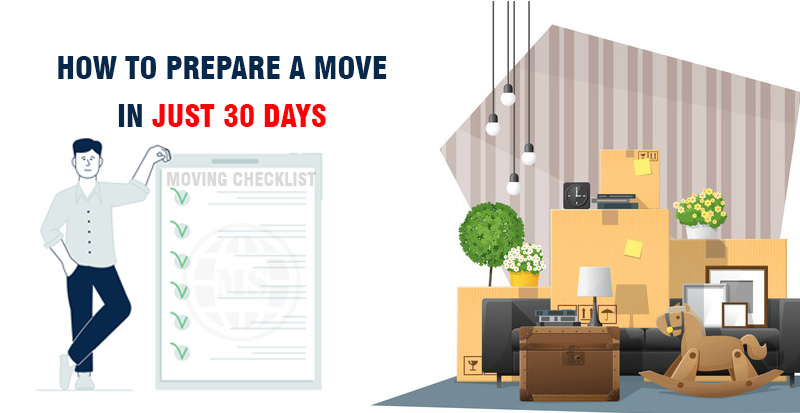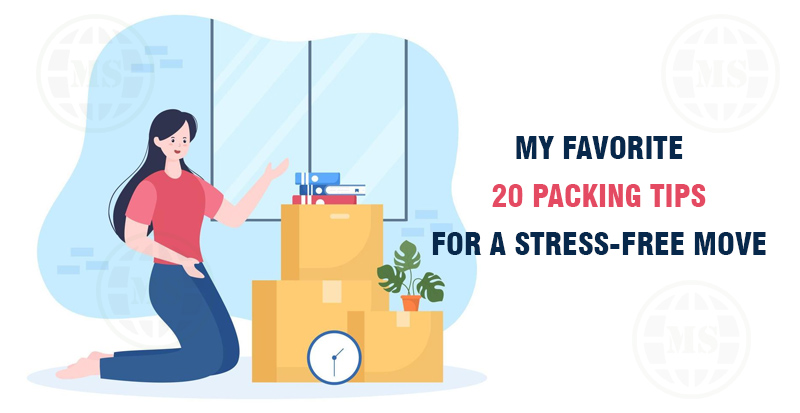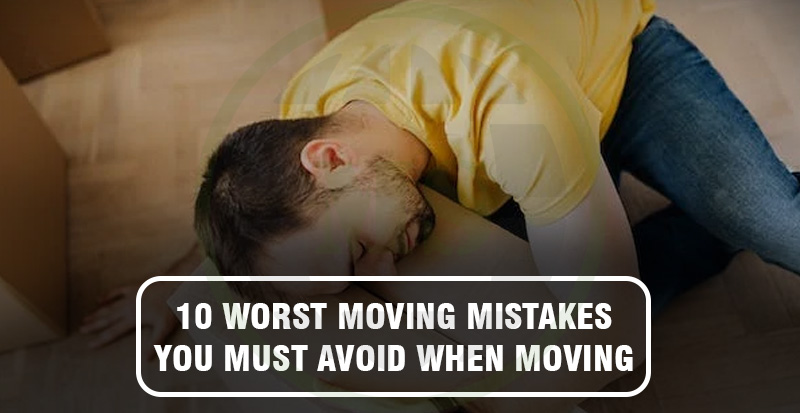The emotional side of moving is not a fairytale. Many people say, “It is exciting”. But let’s be honest. Moving sucks, even if you have planned it for months. You can have every box packed and labeled accurately. You may have the best packers and movers in town. And you have a good pre-moving checklist. And it still hits hard.
Because you are not just packing boxes; you are packing up your whole life. The school where your kid made friends, your favorite coffee spot, that weird little corner store you loved — suddenly gone, or at least, not part of your daily routine anymore.
The grief, the excitement, the guilt, the overwhelm — it is a lot. And while most moving guides will tell you how to pack your kitchen, few talk about what to do when your heart feels like it has been shoved in a box, too.
This post is here to unpack that emotional mess. We are diving into what you might feel before, during, and after the move, and more importantly, how to deal with it without losing your grip.
Why Moving Feels So Overwhelming
Here is the thing, most people do not really talk about: Not just your schedule, not just your bank account; your actual sense of home and self.
We tend to think of a house as just four walls and a roof, but you know better. A home is where your life actually unfolds; where you have cooked your favorite meals, crashed on the couch after long days, and fallen asleep feeling safe. It is not just a storage house for your possessions; it is where you live.
Think about your kitchen. It is where you had late-night tea or coffee after watching your favorite show on Netflix. The corner of the living room where your baby took their first steps. That balcony where you sat for hours, just watching the rain. These little moments? Not just memories, but part of your emotional foundation.
When you move, you do not just pack furniture and boxes. You pack up layers of attachment, comfort, and familiarity. Moving can feel like disassembling a piece of your life and trying to reassemble it somewhere else, unsure if it will still fit the same way.
Common Emotional Reactions to Moving
1. Anxiety and Uncertainty
One of the BIGGEST emotional hurdles during a move is the constant “what ifs”.
- What if the neighborhood is not safe?
- What if the kids do not fit in at their new school?
- What if I do not make any friends?
- What if this place never feels like home?
These are not small questions. These “ifs” and “buts” can mess up your sleep. You can feel your chest tighten in the night. And you may find yourself left in your own mind. The anxiety is not just about physical unpacking; it is about whether your life will settle back into a rhythm again. The uncertainty is real.
2. Sadness and Grief
Even when the move is a POSITIVE one, a better job, a bigger house, or a dream home, it is normal to experience profound sadness. And that can really surprise you with something unexpected. Something unpleasant.
You might find yourself missing the tiny details you did not realize meant so much. Chatting with the cashier at your favorite corner store, walking the same path to the park, or recognizing familiar faces around the neighborhood… the grief is real.
That sadness, that grief — it does not always hit right away. It can sneak up on you weeks or even months later after the move. Maybe when you drive past your old neighborhood, see a photo of your previous home, or when a local festival happens without you for the first time.
3. Guilt
One of the HARDEST parts of relocation can be the guilt. The guilt of pulling your children away fro everything familiar. Their friends, their school, the park they played in. And when they ask, “Why do we have to leave?” — it hits you right in the gut. That not all.
That guilt can also come in other forms. The guilt of leaving your aging parents who is used to seeing you every week. And the guilt of close friends who feel like family.
Of course, you want to be there. But at the same time, you also want what is best for your future. And sometimes those two things do lot line up.
Your head might say, “This was the right call,” but your heart? It requires time to catch up. And that emotional tug-of-war? It can last long after the move is done and the boxes are unpacked.
4. Stress and Burnout
Even if you have planned everything the right way, hired good packers and movers, labeled every box, and triple-checked the paperwork – your move is still exhausting.
There is just no way around it. Packing, cleaning, organizing, coordinating, it all demands your full attention. And it does not stop until the last box is in, the keys are handed over, and your name on the mailbox.
And if you are going through another major life shift at the same time, like starting a new job, going through the tough phase of a breakup, dealing with health stuff, the stress does not just add up. It multiplies.
You may also like this post: Navigating the Emotional Rollercoaster: How to Cope With Moving Stress
The Sentimental Attachments We Carry
For a lot of people, the hardest part of moving is not the packing or the paperwork. It is saying goodbye to the small things that carry weight — like the shirt your kid wore every day in second grade, or the old lamp you swore you would fix but never did. These little things pull you back into memories.
This is especially true if you have spent decades in one home. In this situation, moving out can be like flipping through a photo album, you di not ask to open. Maybe you are retiring, the kids are gone, or someone you loved is not around anymore. Suddenly, it is not just about a new address. It is about closing a chapter you were not ready to finish.
Special Considerations: Emotional Impact on Different Groups
Children
Moving can be especially hard on kids — not because they are dramatic, but because they often do not have the words to explain what feels off. One day they are in their room with posters on the wall and toys under the bed, and the next, it is boxes and strangers. Their school, their routines, the friend across the street; suddenly gone.
You can try to explain the reasons: a better job, a nicer house. But to them, it might just feel like everything familiar is being taken away. Home, for a child, is not just walls and furniture. It is where their whole little world makes sense. And when that disappears, they can feel unanchored, even if no one around them fully sees it.
Teenagers
Teenagers often take a move especially hard — not just because of the hassle, but because it hits them right where it hurts most: their social world. They might struggle more with social disruption. At that age, friendships are not just important. They are everything. They are how teens figure out who they are. So when you move, it can feel like ripping out a piece of their identity.
Even if you sit down and explain all the logical reasons for the move, they might not be easily convincible. To them, it is a disruption they did not choose, happening at a time when life already is unstable. It is not just switching schools; it is starting from scratch when they were finally finding their place.
Elderly Family Members
If you have an older parent or relative having to move, after perhaps decades in one place, the emotional toll can be much worse than it appears. For some, home is more than the material memento — it is identity lived. That leaves behind the pain of grief, and uncertainty about what do next (whether to downsize or move closer to family.) Even for good reasons, discourse of that form may sound like a slow goodbye to a life that took a number of years and much effort to build.
Single Individuals
The loneliness which comes from all of this for those of us moving without a partner or family can be exhausting. Even if other people do not always see that. Every choice. Every task. And every bump along the way. It falls on your shoulders. You are the one left standing, alone in the silence of a new space, after the moving truck pulls away. Figuring it out from scratch. There is more than just the boxes themselves; it is about carrying the weight of all those emotional loads, without any back-up along with you.
Cultural and Personal Identity
People often think of home as a physical place. But it is also related to how you want to live and what place fits with feeling understood. The corner store that sells your spices. The local temple or mosque where you go to worship. Even the calls of good morning, when you are walking on the road. These things become an integral part of your daily routine.
It seemed to be completely seamless until the moment you moved, especially when moving across cultures. You see this in small instances first. You make a request at a store and receive no accent feedback. And you celebrate a festival, everyone else just gets more confused. The food tastes different. The street feels unfamiliar. It is not that the new place wrong, it just does not know you yet.
For families coming from somewhere like Delhi to a city like New York, this disconnect can build up silently. In some cases, parents might even refrain from speaking in Hindi outside their home as no one around them can understand. Grandparents are embarrassingly dressed, and their lunch is sufficient for everyone but the children. What you considered enjoyable now feels like something you have to justify. Suffering this for a time, you go frustrated.
When Excitement and Grief Coexist
Moving can mess with your emotions in strange ways. You might feel excited one moment and heartbroken the next. And both feelings are real. Maybe you landed a job you have been working toward for years or finally found a home that feels right. But at the same time, you are saying goodbye to streets you knew by heart, people you saw every week, and routines that quietly held your life together.
It is not a contradiction. You are allowed to look forward to what is coming and still feel the weight of what you are leaving. That mix of hope and sadness is often what makes a big change feel real. You do not have to sort it out right away. Just notice what comes up. Some days will feel light. Others will feel heavy. Let both be okay.
The Emotional Timeline of a Move
Emotional responses to moving often follow a timeline, though not everyone experiences them the same way. Here is a rough outline:
- Before the Move: Anticipation, anxiety, sadness, overwhelm
- During the Move: Stress, decision fatigue, urgency, confusion
- Immediately After: Disorientation, nostalgia, relief, exhaustion
- Weeks Later: Reflection, emotional dips, slow adjustment, rebuilding habits
- Months Later: Acceptance, new routines, regained stability, connection
Recognizing this emotional arc can help normalize the experience. It also allows you to anticipate your needs and take better care of your emotional health.
Why Emotional Preparation Matters
Most people focus on the to-dos: finding a mover, collecting boxes, changing addresses, and setting up the new place. The emotional part? That often gets skipped or squeezed into the last minute, if it shows up at all.
But the truth is, moving affects more than your schedule. If you ignore what it is doing to your head, it catches up with you. You might lose sleep, snap at people over small things, or just feel off for weeks without knowing why.
It helps to plan for that too. Not with some perfect system. Just a little space to check in with yourself. Think about what the move means to you, what you are nervous about, what you are quietly carrying. It is not overthinking. It is preparation. And it can make the difference between feeling completely confused and finding your stability a little sooner.
Practical Tips for Emotional Resilience During a Move
We started by addressing how moving affects us emotionally. And now, the nitty-gritty: when its heaviness hits. Keep matters in your hands and avoid them controlling you. Yes, moving is really hard, but there are ways to cope with the stress and grief that come along for the ride.
The following are some family and individual mental health strategies and daily routines that can assist in processing the emotional transition involved with a move.
1. Acknowledge Your Emotions Without Judgment
Emotional equilibrium starts with the realization of what you feel. If you are feeling stress, anger, sadness, or fear, the goal is not to “fix” the feeling but to understand what it is.
This is when people tell themselves to stop being so silly — it not important. They might say “Why am I crying. It is nothing but a house or I should not be so happy about this. But pushing away feelings only delays healing.
Instead, slow down and consider what you are feeling and why. Write about it. Talk to a friend. Sit with it for a while. You give the emotion (grief, fear, guilt, whatever) room to move through you.
2. Build a Mental Health Toolkit
Pick a few habits that help you feel steady while you move. You do not need a long list. Even one small thing you do each day can help.
- Journaling: Write something down each day. It might be about the move, a worry, or just what you saw outside the window.
- Breathing Exercises: When you feel tense, close your eyes. Count each slow breath until you feel calmer.
- Walks in Nature: Step outside. Notice the air, the ground under your feet, and what is around you.
- Limit Social Media: If looking at posts makes you restless, take a break from it for a while.
- Music or Art: Play a song you know well or make something with your hands.
These habits will not solve every problem, but they can give you a few calm moments in the middle of change.
3. Prepare Emotionally as You Pack
Packing often brings back memories. Some are warm, others a little heavy. Taking your time can make the process easier.
- Start Early: Begin with things that mean the least to you, maybe the books you have not opened in months or kitchen items you rarely touch. Save photos, letters, or personal keepsakes for the end.
- Sort Slowly: Give yourself space to decide. Some things you will pass on, others you will toss. It is fine to keep something just because it matters to you.
- Say Goodbye: Before leaving, walk through each room. Let yourself notice a favorite spot or a moment you remember there. It may feel like a small act, but it helps you let go.
4. Have a Conversation with Your Children
Younger children in particular, crave stability and feel threatened when it is not there. A big change can literally turn their (our) world on its head.
- Clearly Explain: Make sure you tell your child in kid terms why a move is happening.
- Be Honest: If Your Kid Asks, “Will I Ever See My Friends Again?” produce a sincere and well-formulated response, even if the response is disagreeable.
- Awaken Excitement: Mention what is awesome about your new location (a big park, a private bedroom, a cool thing to do)
- Set Up Regular Routines: Maintain consistent meal and bedtimes throughout the move and for a period after to help keep my world stable.
Allow children to express sadness or anger. Do not say: “stop crying” or “just be happy.” Their feelings deserve the same space and respect as yours.
5. Get Help; Do Not Go Through It Alone
The toll of moving can be a devastating one if carried alone. Talk to someone. This could be a friend, partner, counselor, or other religious guide. You will find relief if you have someone who just listens to you.
Counseling is not only helpful in times of crisis. You may find that even a couple of sessions before or after the big move. This can present you with some much-needed insight and emotional release.
Apart from personal conversations, keep these resources in mind as you seek support:
- Community Groups: Local Facebook groups, neighborhood forums · · ·
- Support Hotlines: A professional to speak with about going through life transitions.
- Religious or Cultural Centers: If you have strong beliefs or are looking for a sense of community based on your roots.
6. Take Care of Your Body
Emotional stress has a way of manifesting in the body. During a move, headaches, fatigue, muscle tension, and digestive issues are all common. Notice your body giving you that physical cue when you are stressed out.
How to care for your body during a move.
- Eat Real Meals: Do not survive on snacks and takeout only. Balanced meals stabilize your mood.
- Sleep on Time: Challenge and sleep off even if you have a long to-do list.
- Drink Water: Dehydration can lead to anxiety feeling more prominent.
- Stretch or Exercise: Even a few stretches each morning can improve your energy and mental state.
Remember, your body and mind are a single entity. Supporting one helps the other.
7. Create New Traditions in Your New Home
A great way to relieve some of the stress and emotions during a move is to focus on rebuilding joy. You can start by creating a small ritual or tradition in your new space.
- Have your first meal sitting on the floor with candles and laughter.
- Plant something in a pot or in the yard as a sign of new beginnings.
- Let your child choose a wall to decorate with drawings or posters.
- Invite a neighbor for tea, even if the house is still messy.
It may seem like simple acts, yet this is the beginning of creating a culture of safety and significance. And eventually, the new space begins to hold meaning and memories.
8. Accept That Adjustment Takes Time
Avoid expecting to feel at home immediately. Acclimation is not a moment; it is a journey. Some people feel better in a week. Others take months. Both are normal.
Allow your family time to acclimatize as well. Stop feeling like you should be at X place by Y date.
You will have moments of doubt where you question whether or not it was the right move. Maybe you will drive by that house or an old neighbor of yours. This is an emotional cycle, not a failure.
9. Let Sentimentality Be Part of the Journey
Moving does not mean you must forget the old place. Keep items that hold meaning. Make photo albums. Write a letter to your old home. Tell your children stories from your previous life.
Let the emotional attachments exist. They are part of who you are. And they can help you appreciate both where you came from and where you are going.
10. Celebrate the Move; Even the Hard Parts
At some point, stop for a moment. And appreciate what you have done. You planned, got everything together, went to the airport or hopped into the car/truck, moved in, and started living all over. That is not small. It is brave.
Celebrate how you want to celebrate. Perhaps it is a tranquil evening of your favorite meal. Perhaps it is a host of a housewarming party in the company of music and friends. Maybe it is just standing in your new home and whispering to yourself, “I made it.”
The emotional side of moving is not a weakness. It is a sign that you have lived with depth and connection. And it means you will continue to do so, no matter where you go.
Final Thoughts
Moving is stressful, but it also brings about change and opportunity. Emotional challenges like grief, guilt, and uncertainty are real. And you cannot skip those, even with your best planning and best packers and movers in the town. However, you can pass through the emotional side of moving with care, reflection, and support.
It does not have to be perfect, but you just need to keep it honest with yourself. Feel what you feel. Say what you need. Ask for help. Give yourself time. Let the transition shape you, but not undo you.
Each home leaves a mark. And with every move, you carry something forward—experience, wisdom, memory, and the quiet courage to start again.
A copywriter, blogger, content strategist by profession, and an information junkie by heart. I have a penchant for reading, researching, writing, and anything related to creating persuasive content. For me, writing is something that ignites my creativity and helps in keeping me on cloud nine. I have been working in the content writing domain since 2006. Be it blogging or copywriting, I create better content that fuels conversations and skyrockets search traffic.






